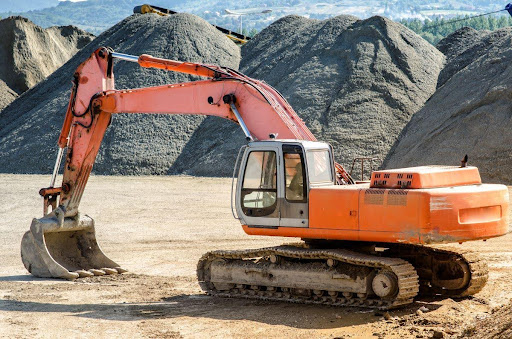Excavators are imperative for construction, mining, and landscaping due to their top-notch efficiency and versatility.
At the heart of their functionality lies a sophisticated machine: excavator hydraulics. Understanding how this machine operates and why it’s vital can assist operators in preserving the most beneficial overall performance, reducing downtime, and making informed purchasing choices.
This blog highlights the intricacies of the excavator hydraulic system, its components, functions, and repair issues.
Table of Contents
What Is an Excavator Hydraulic System?
The excavator hydraulic system is a community of interconnected additives that uses hydraulic fluid below strain to power the system’s various features.
Unlike mechanical systems, hydraulics enable smoother, more unique functions, even beneath heavy masses, making them crucial for excavators to carry out tasks like digging, lifting, and rotating.
Key Hydraulic System Components
To recognise how the system works, it is essential to acknowledge its primary additives:
- Hydraulic Pump: Converts mechanical power into hydraulic electricity by pressurising the hydraulic fluid.
- Hydraulic Cylinders: Actuators that convert hydraulic energy into linear movement, allowing the increase, arm, and bucket to move.
- Hydraulic Fluid: A mainly formulated liquid that transmits strength, lubricates components and stops corrosion.
- Control Valves: Direct hydraulic fluid flow to unique system parts, ensuring particular operations.
- Reservoir: Stores hydraulic fluid and enables machine stress and temperature.
- Hoses and Fittings: Channels for hydraulic fluid designed to resist high stress and temperature.
Each element is essential in ensuring the device operates effectively, making protection critical to avoid high-priced maintenance repair work.
How Hydraulic Excavator Functions Work
The force and accuracy needed for excavators to carry out their many tasks are supplied by hydraulic systems. Let’s examine the primary functions that excavator hydraulics power:
- Digging: The bucket can effectively scoop and raise earth, rubble, or materials thanks to hydraulic cylinders on the boom and arm.
- Swinging: A hydraulic motor helps the excavator’s upper framework revolve smoothly, providing freedom on the job site.
- Lifting and Lowering: The cylinders’-controlled fluid movement provides stability and accuracy when lifting large loads.
- Travelling: Mobility over uneven terrain and slopes is made possible by the hydraulic system that powers the tracks.
The smooth operation of the hydraulic system’s components is essential to these operations. Any issue could result in downtime or, worse, operational inefficiency.
Why Excavator Hydraulics Matter
The significance of excavator hydraulics extends past simple operations. A sophisticated hydraulic system component ensures:
- Efficiency: Hydraulic structures transmit power more successfully, reducing fuel consumption and growing productivity.
- Precision: Smooth and controlled actions are critical for delicate obligations like trenching or grading.
- Durability: Properly maintained hydraulic structures increase the excavator’s lifespan by reducing wear and tear on crucial components.
- Safety: Malfunctioning hydraulics can cause injuries or damage to equipment, underscoring the need for everyday inspection and repair.
Whether you are working with a full-sized system or considering a mini excavator for sale, understanding the hydraulic machine’s role can help you pick the right equipment for your needs.
Maintenance Tips for Excavator Hydraulics
Maintaining the hydraulic machine is vital for the most effective performance. Here are some satisfactory practices:
- Regular Fluid Checks: Ensure hydraulic fluid degrees are working smoothly and replace the fluid as recommended.
- Inspect Hoses and Seals: Look for symptoms of wear and tear, cracks, or leaks and replace broken elements promptly.
- Clean Components: Keep the system clean to save you from dirt that could harm internal components.
- Monitor Temperature: Avoid overworking the system to save you from overheating.
- Routine Professional Service: Schedule periodic renovation with experts to maintain all components properly.
These steps help prevent breakdowns and ensure your excavator operates successfully.
Selecting the Proper Excavator
Knowing the quality and capabilities of an excavator’s hydraulic system. Seek out equipment with dependable parts, strong hydraulic systems, and a track record of correct maintenance. Whether you’re considering buying a new or used machine, such as an excavator for sale QLD, make sure to do a full inspection and request comprehensive maintenance records.
Consider the requirements of your initiatives as well. Without sacrificing performance, a micro excavator provides the adaptability and accuracy needed for small jobs or confined areas.
Heavy-duty jobs are better suited for more extensive equipment, which guarantees you have the appropriate tools for the job.
Conclusion
The foundation of these strong machines is excavator hydraulics, which allows them to carry out a variety of duties accurately and effectively. Your knowledge of the hydraulic system’s parts, operations, and maintenance requirements can significantly impact your equipment’s longevity and performance.
Whether you’re looking to buy new equipment, such as a mini excavator, or looking through alternatives under understanding hydraulics will help you make the best choice and maximise your investment.
By making routine maintenance a priority and quickly addressing problems, you can ensure that your excavator’s hydraulic repair is minimised and stays in excellent shape and is prepared to handle any task with ease.





